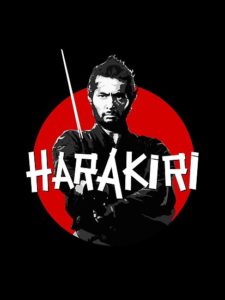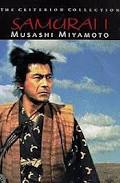 FRASES POPULARES EN CUBA: “HACERSE EL HARAKIRI”. FOTOS.
FRASES POPULARES EN CUBA: “HACERSE EL HARAKIRI”. FOTOS.
Una de las frases mas usadas por los cubanos, principalmente desde que comenzó a invadír a Cuba las películas Japonesas de los años 60s fue el “hacerse el Harakiri” que proviene de la explicación de este rito asiatico que fue el harakiri, haraquiri o hara-kiri (腹切 o 腹切り? lit. «corte del vientre») un suicidio ritual japonés por desentrañamiento, al cual recurrian los guerreros conocidos como samuráis antes de ver su vida deshonrada por un delito o falta. Estos hombres plegados hace cientos de años a una élite militar que gobernó al país, consideraban esa práctica (muy común entre ellos), como una entrega al honor de dejar el mundo gloriosamente rechazando cualquier tipo de muerte natural.
En los inicios de los 60, dejan de proyectarse en Cuba los “Westerns”, que habían tenido la exclusiva de las pupilas isleñas desde la era del silencio en el séptimo arte. tras la crisis de los estudios de Hollywood con la llegada en los 50 de la televisión.
Los filmes japoneses irrumpieron en la isla, con Toshiro Mifune (1920-1997) como el actor emblemático de esta etapa y producciones de la calidad de Los malos duermen bien, Barbarroja, Sanjuro y Trono de sangre.
Otros cintas hicieron época en el país a salas repletas, entre ellas: ‘Los Siete Samuráis’. ‘Tange Sazen y la espada’, ‘La espada maldita’, ‘Yojimbo’, ‘Tange Sazen y el jarrón’, ‘Kanzuke el estratega’, ‘El esgrimista ciego’ y ‘el experto en ajedrez’.
Akira Kurosawa uno de los directores más famosos, exageró la muerte y la violencia en las películas y en sus obras los samuráis eran figuras solitarias y errantes, más preocupados en ocultar sus habilidades que hacer alarde de ellas.
En la década del 70 la cinematografía de samuráis, con amplia repercusión en el plano cultural, entró en franca decadencia en el mundo y de su etapa de auge los cubanos incorporamos una frase, popular hasta nuestros días.
El género que influyó grandemente en el cine mundial, nos dejó la expresión “Hacerse el harakiri”,que los oriundos de la isla caribeña empleamos ante la obligación de aceptar o retractarse de algo, aunque la decisión implique sacrifició.
 POPULAR PHRASES IN CUBA: “INFLICTS THE HARAKIRI”. PHOTOS.
POPULAR PHRASES IN CUBA: “INFLICTS THE HARAKIRI”. PHOTOS.
One of the phrases most used by Cubans, mainly since the Japanese films of the 60s began to invade Cuba was the “Harakiri” that comes from the explanation of this Asian ritual that was the harakiri, haraquiri or hara-kiri (腹 切 or 腹 切 り? Lit. “belly cut”) is the Japanese ritual suicide by unraveling, which warriors knew as samurai resorted to before seeing their life dishonored by a crime or fault.
These men folded hundreds of years ago to a military elite that ruled the country, considered that practice (very common among them), as a surrender to the honor of leaving the world gloriously rejecting any kind of natural death.
In the early ’60s, the “Westerns”, which had had the exclusive fame of the island pupils since the era of silence in the seventh art, stopped being projected in Cuba. after the crisis of Hollywood studios with the arrival in the 50s of television.
The Japanese films stormed the island, with Toshiro Mifune (1920-1997) as the emblematic actor of this stage and productions of the quality of The Bad Sleep Well, Barbarossa, Sanjuro and Throne of Blood.
Other tapes made time in the country to packed rooms, including: ‘The Seven Samurai’. ‘Tange Sazen and the sword’, ‘The cursed sword’, ‘Yojimbo’, ‘Tange Sazen and the vase’, ‘Kanzuke the strategist’, ‘The blind fencer’ and ‘the chess expert’.
Akira Kurosawa one of the most famous directors, exaggerated the death and violence in the movies and in his works the samurai were lonely and wandering figures, more concerned with hiding their skills than flaunting them.
In the 70s the samurai cinematography, with wide repercussion in the cultural plane, entered in frank decadence in the world and from its boom stage, the Cubans incorporated a phrase, popular until our days.
The genre that greatly influenced the world cinema, left us the expression “Be made the harakiri”, that the natives of the Caribbean island used before the obligation to accept or retract something, even if the decision implies sacrificed.
Agencies/ Arrajatabla/ Alberto Denis/ Internet Photos/ Arnoldo Varona/ www.TheCubanHistory.com
THE CUBAN HISTORY, HOLLYWOOD.



 < CUBAN Popular Phrases: " Hacerse el HARAKIRI". Photos.
< CUBAN Popular Phrases: " Hacerse el HARAKIRI". Photos.





